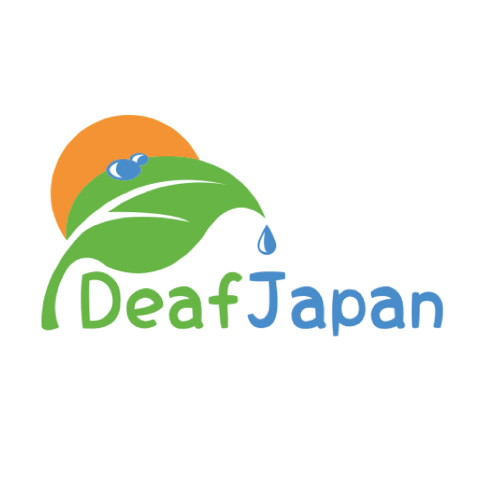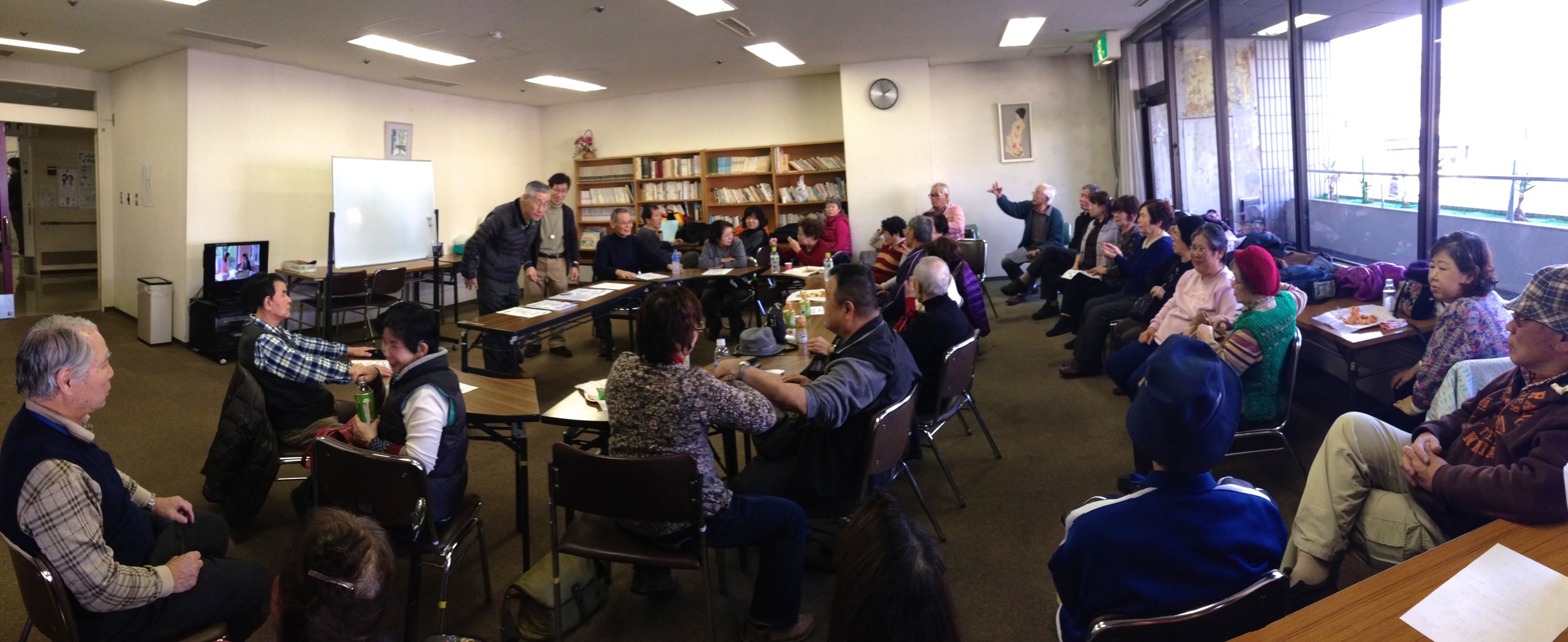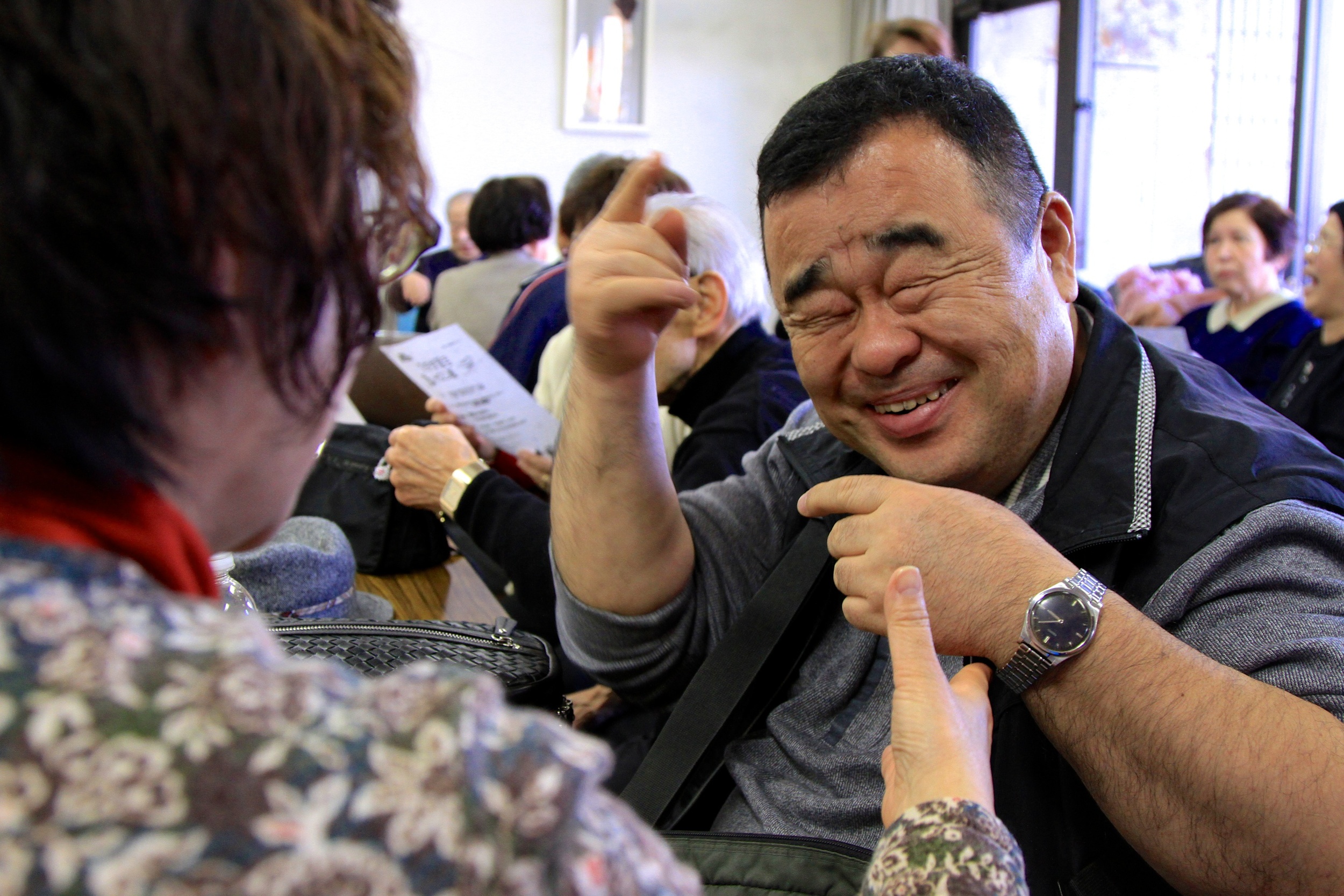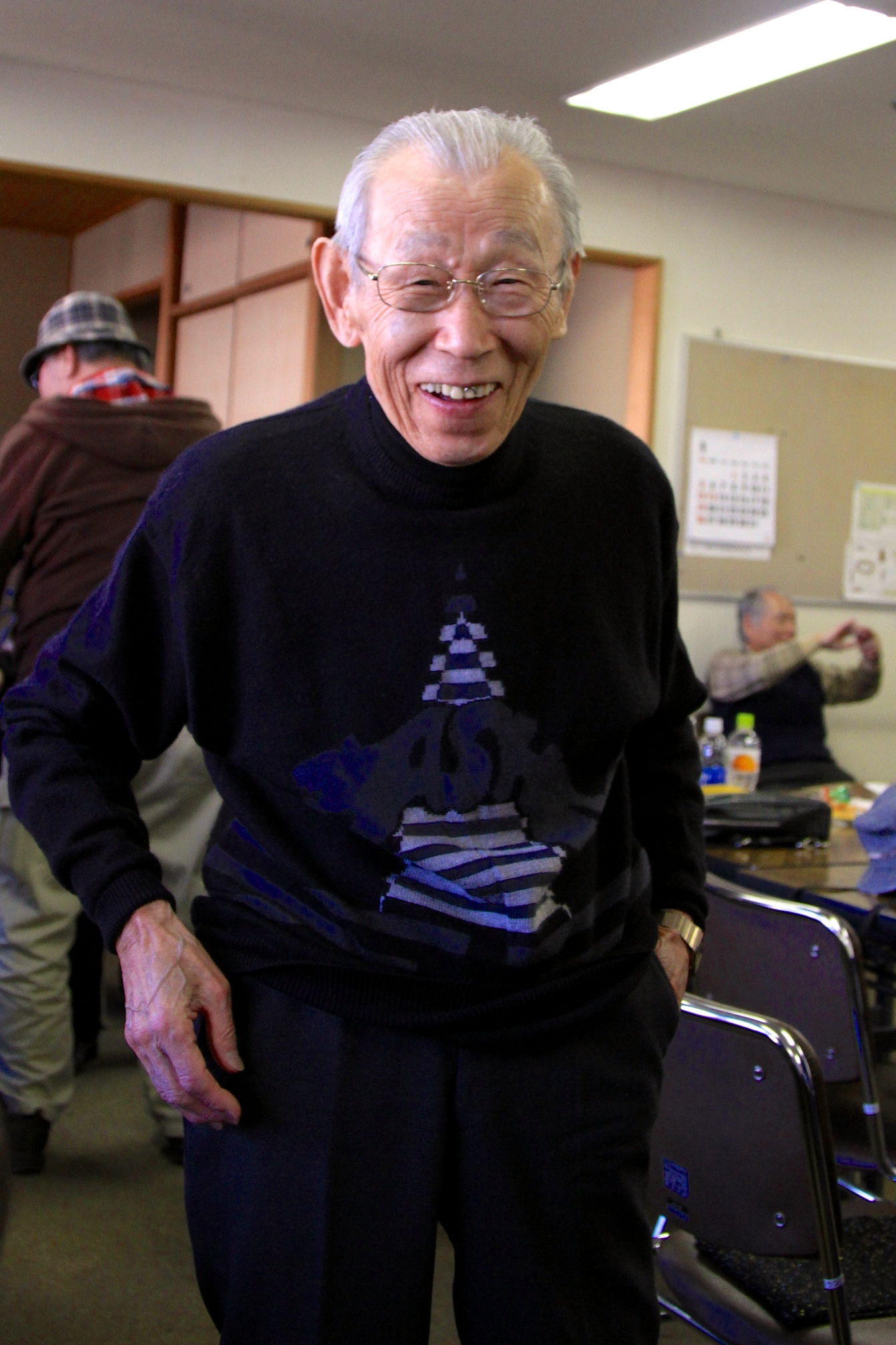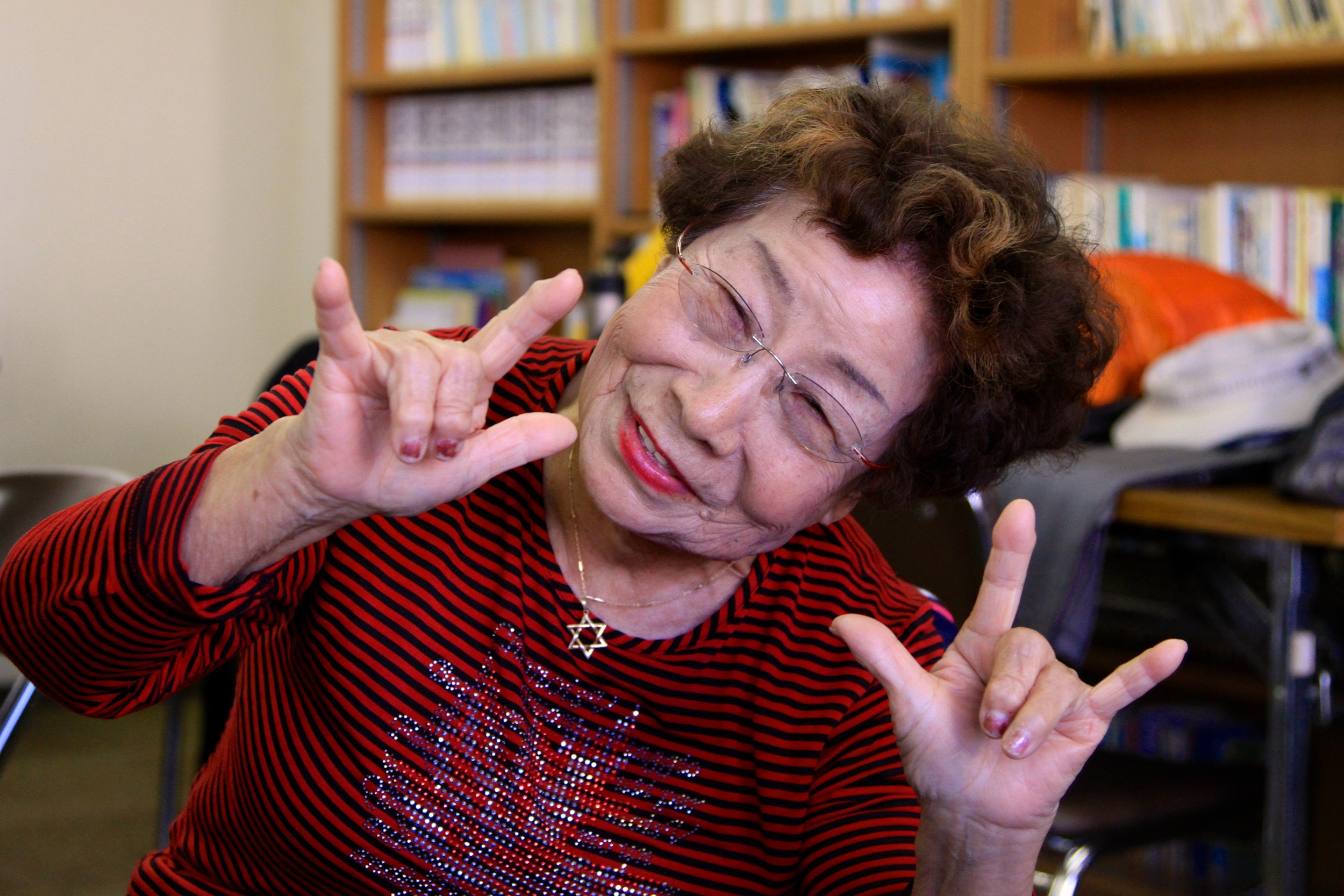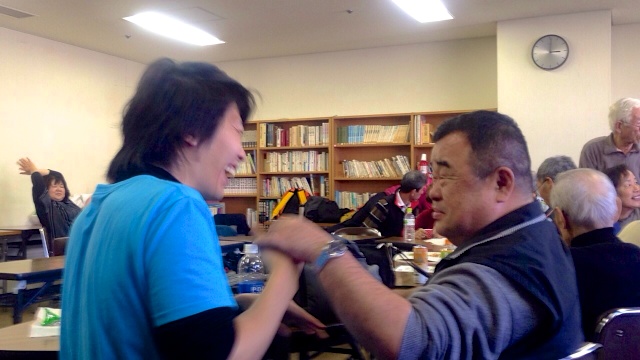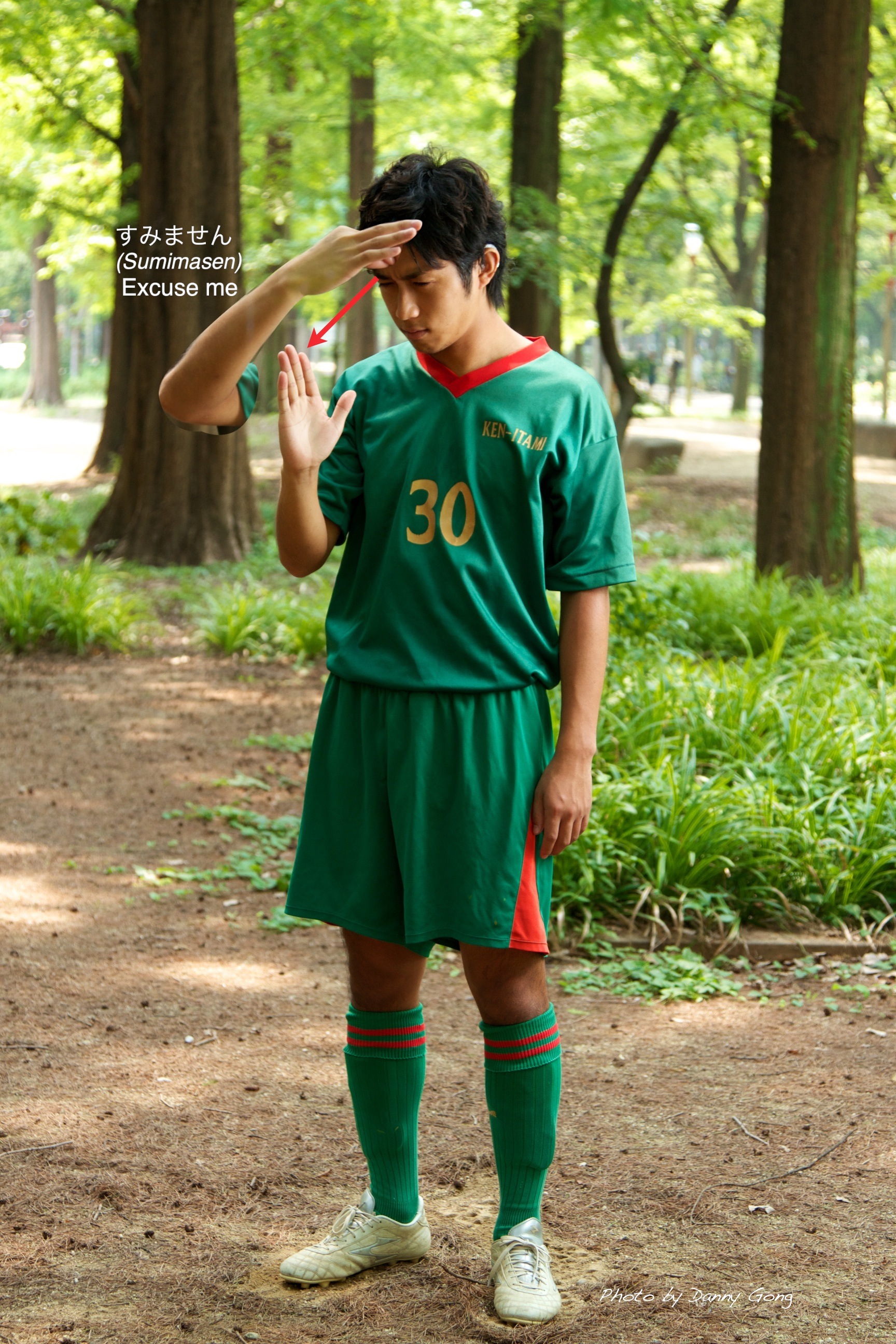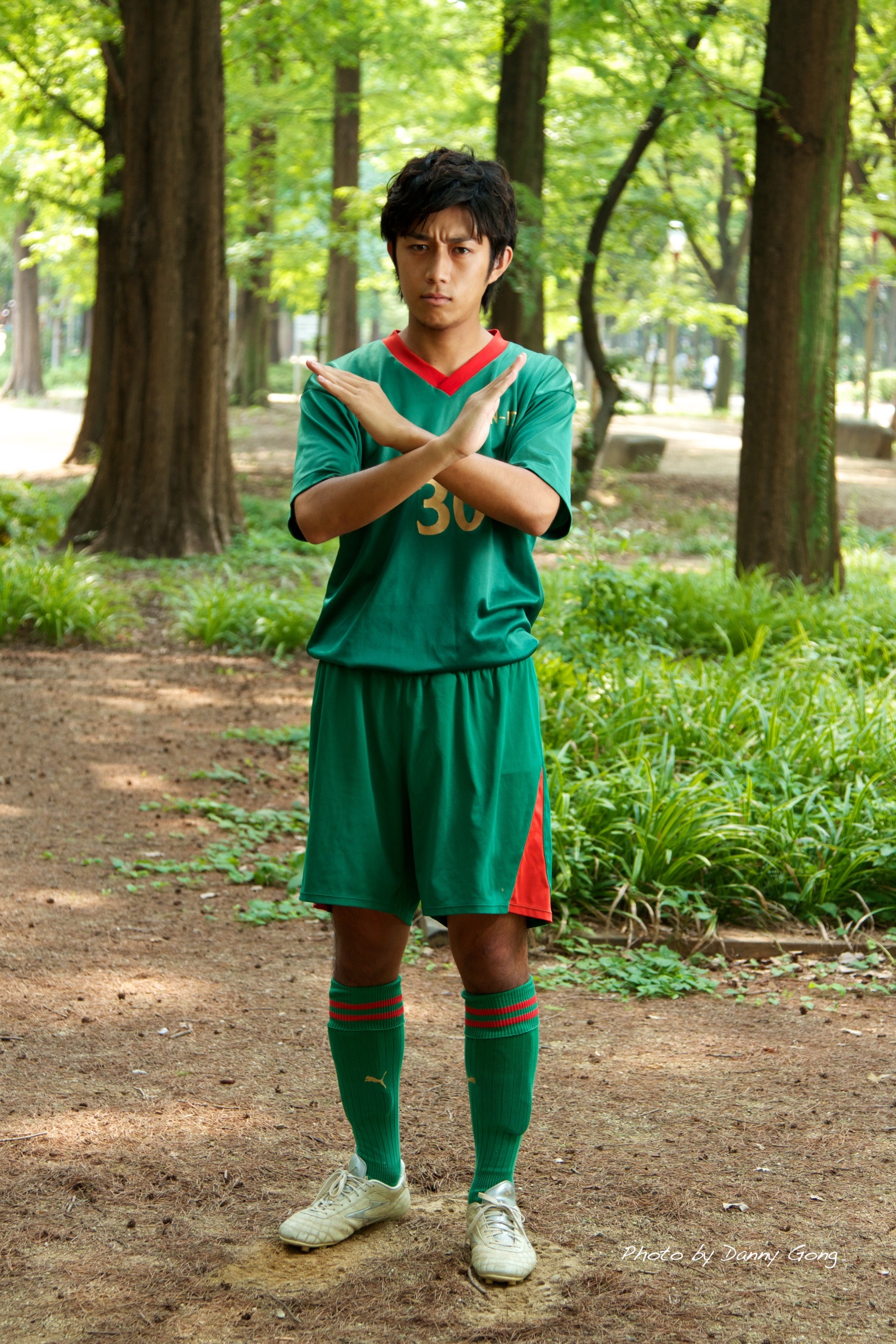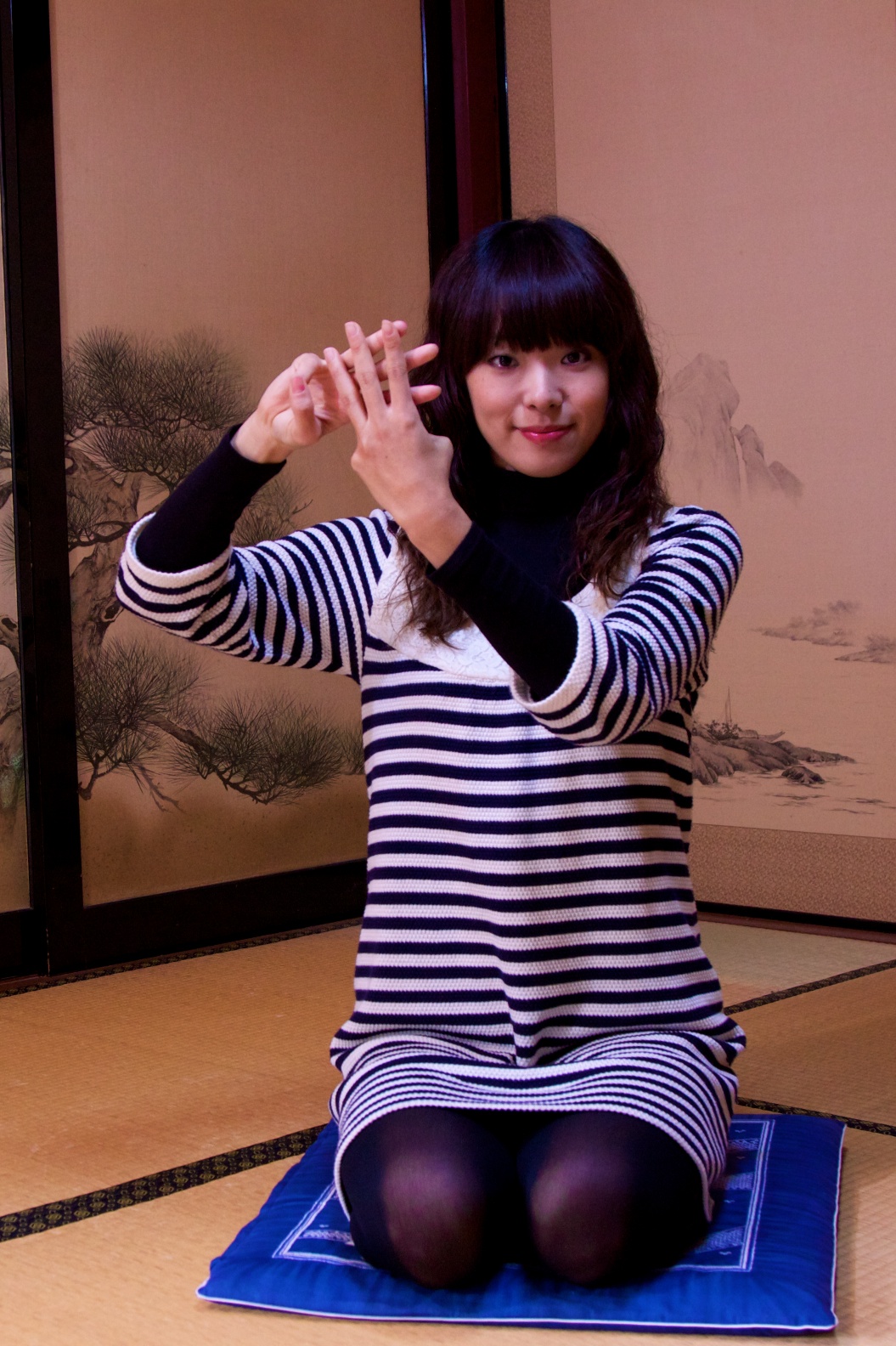Yesterday, I was fortunate to visit a Community Center in Sakai-Higashi, Osaka.
Every Wednesdays from 1:00pm - 4:00pm, many Deaf and Deaf-Blind Japanese people meet together, share information, and catch-up with each other.
It's great to see that there is a community center where people can come together and be a part of their community.
There's something about meeting people face to face, joking and laughing with them.
Even though the average age was about 65-70 years old, everyone was so Genki and high spirited!
It was such a great experience.
- Danny Gong
